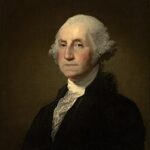President George Washington issued the Washington Proclamation of Neutrality on April 22, 1793. This declaration kept America neutral in European conflicts between France and Britain. Washington made this decision without consulting Congress first.
The Constitutional Crisis
Thomas Jefferson and James Madison strongly opposed Washington’s unilateral action. They argued the Constitution gave Congress exclusive war powers. ⚠️ The proclamation violated constitutional separation of powers, they claimed. Madison wrote that only Congress could decide matters of war and peace. Jefferson believed Washington had exceeded his executive authority.
Hamilton’s Defense
Alexander Hamilton defended the Washington Proclamation of Neutrality vigorously. He argued the president held broad foreign policy powers. 📊 Hamilton published essays under the pseudonym “Pacificus” defending executive authority. He claimed the Constitution granted presidents inherent foreign affairs powers.
Political Divisions
The neutrality debate deepened partisan divisions in early America. Federalists supported strong executive power in foreign policy. Democratic-Republicans favored strict constitutional limits on presidential authority. 💰 Economic interests also influenced the debate over European trade relationships.
Impact:
The Washington Proclamation of Neutrality established crucial precedents for presidential power. This decision shaped American foreign policy for generations. The constitutional debate continues influencing executive authority today.
Immediate Political Consequences
🔥 The neutrality proclamation intensified partisan warfare between Federalists and Democratic-Republicans. Jefferson resigned as Secretary of State partly over this constitutional disagreement. Madison launched the “Helvidius” essays attacking Hamilton’s constitutional interpretation. Congress felt excluded from crucial foreign policy decisions.
Constitutional Precedent
Washington’s action expanded presidential powers beyond strict constitutional limits. Future presidents cited this precedent to justify unilateral foreign policy decisions. 📉 Congressional influence over foreign affairs gradually declined over time. The Supreme Court later referenced this precedent in separation of powers cases.
International Relations Impact
🌍 The neutrality proclamation kept America out of European wars temporarily. France felt betrayed by American neutrality despite their revolutionary alliance. Britain welcomed American neutrality but continued violating American shipping rights. The proclamation established America’s preference for avoiding foreign entanglements. This decision influenced Washington’s Farewell Address warnings against permanent alliances.
